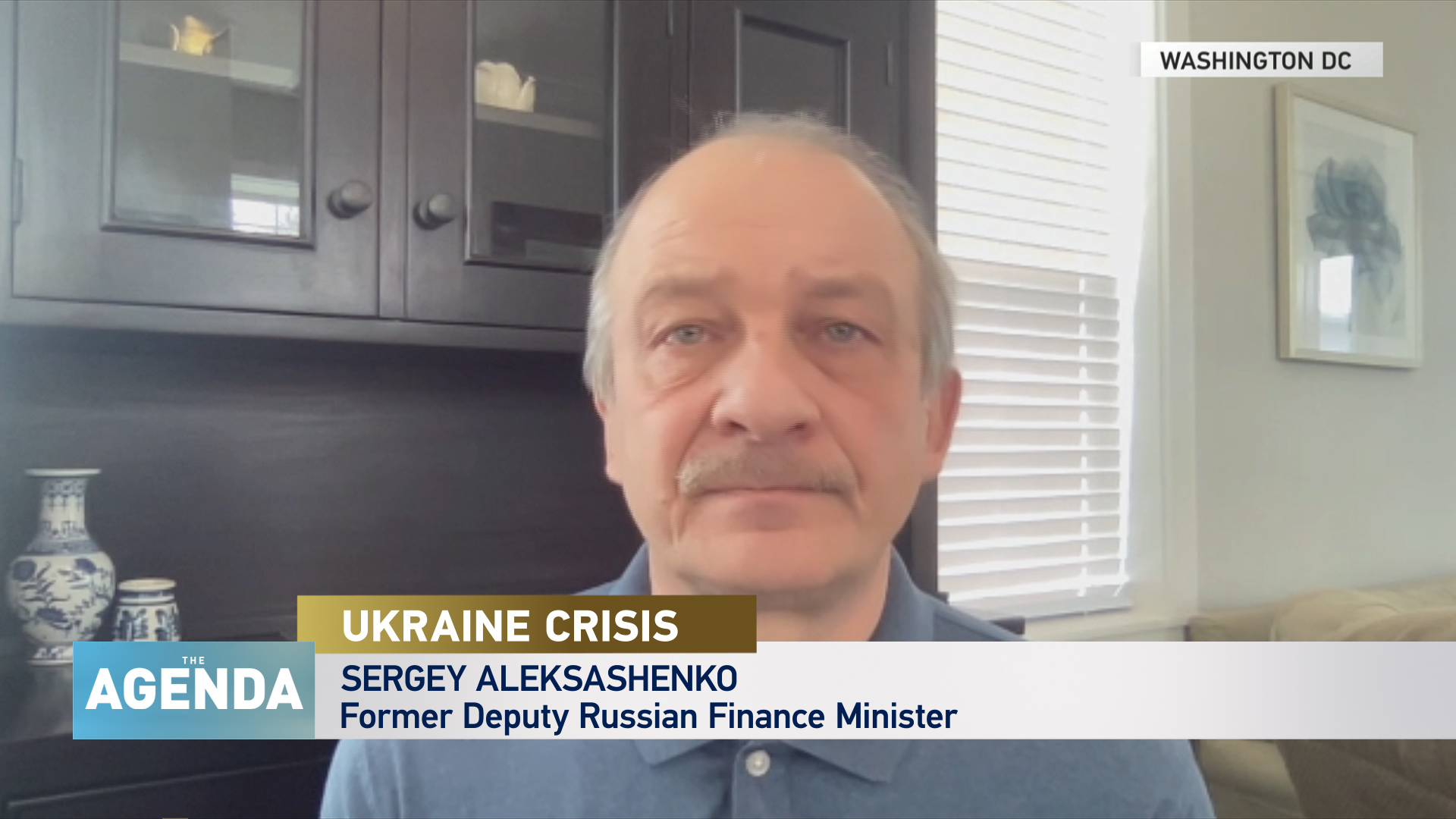Error loading player: No playable sources found
08:51

WHAT'S THE ISSUE?
In the short term at least, it seems current Western sanctions have had a very real economic impact in Russia – inflation is at a 24-year high, interest rates have more than doubled and there's been a collapse in the value of the ruble.
But what is the longer-term effect on the Russian economy likely to be? And, more importantly, is economics the only real way to get president Vladimir Putin to rethink his plans for Ukraine?
Sergey Aleksashenko is a former deputy governor of Russia's central bank – and here he joins The Agenda with Stephen Cole to answer those very questions.
MEET THE EXPERT:
Sergey Aleksashenko is a Russian economist and former government official.
From 1993 to 1995 he served as the Russian Federation's deputy finance minister, and from 1995 to 1998 as the first deputy chairman of the board of Russia central bank. He's also a former chair of Merrill Lynch Russia.

WHAT DOES SERGEY ALEKSASHENKO SAY?
Aleksashenko says that with historically high interest rates and inflation, the Russian people are certainly paying a heavy price for the conflict in Ukraine. However, in terms of the future stability even in the midst of unprecedented sanctions, he thinks the Russian economy can survive.
"Putin has frequently said that Russia has substantial reserves," he says. "Will they be enough to combat sanctions? I wouldn't say that the amount of resources or the amount of available resource to the central bank is the key problem for today's Russia. The current account of Russia is very strong and it's positive."
And in spite of a tumbling ruble and strict controls on foreign currency, Aleksashenko says it's unlikely that Russia will default on its foreign debt payments.
"In my mind, it is up to the Russian minister of finance or Russian president to decide if there should be a default or not – if a Russian minister of finance wants to repay debt and wants to avoid any default, it can be done."
But, he adds, we won't really know the real impact of current sanctions on the economy for some time to come.
"The real effect on the economy of all sanctions will only be visible maybe three to six months from now. By the end of this year, we will be able to see how big the decline in GDP really is, how big the decline in living standards and how the Russian economy will cope after the war, if and when it stops."


ALSO ON THE AGENDA
- Sanctions lawyer Adam Smith
- Lorenzo Codogno, former chief economist at the Italian Treasury